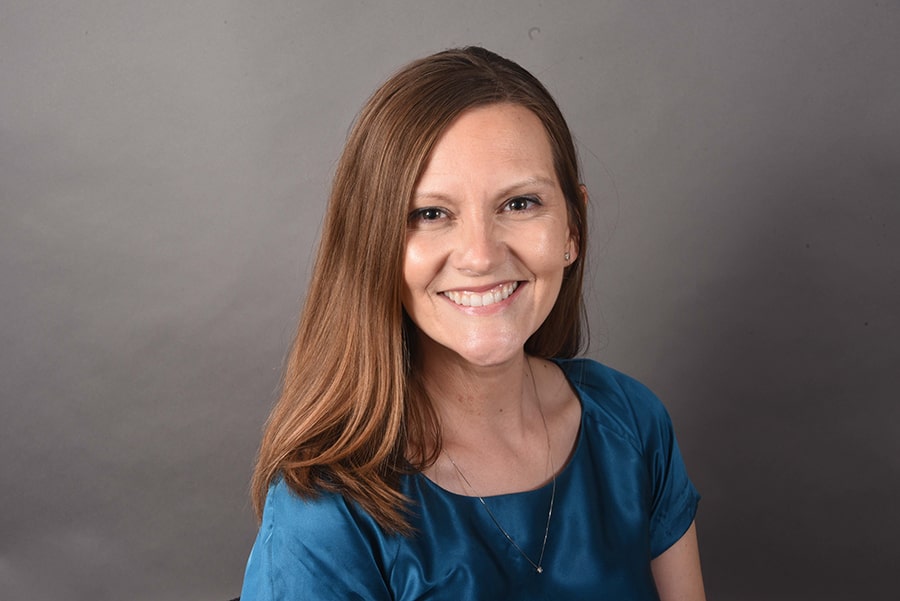- Home
- News
- Recent News
- School Psychology Professor Awarded 2 Million
School Psychology Professor Awarded $2 Million U.S. Department of Education Grant
Lindsay Fallon, associate professor of school psychology in the College of Education & Human Development, has received a four-year award for $1,999,991 from the United States Department of Education to develop resources that will help educators provide culturally relevant social, emotional, and behavioral supports in the classroom.

Lindsay Fallon, associate professor of school psychology in the College of Education & Human Development, has received a four-year award for $1,999,991 from the United States Department of Education to develop resources that will help educators provide culturally relevant social, emotional, and behavioral supports in the classroom.
The grant was given through the Institute of Education Sciences’ National Center for Special Education Research (NCSER).
Fallon is the principal investigator for the funded project: Advancing Equity in the Implementation of Comprehensive Behavioral Health Supports for Youth with or at Risk for Disabilities. Co-Principal Investigators are Assistant Professor Brian Daniels of UMass Boston, Associate Professor Tamika La Salle-Finley of Georgia State University, and Professor Jennifer Greif Green of Boston University.
The project has been designed to develop Advancing Equity (AE), a training and coaching professional development package designed to prepare educators to center equity in the design and implementation of schoolwide social, emotional, and behavioral supports for youth in grades K-12. The research team will work in close partnership with the Behavioral Health Department in Boston Public Schools, an organization that has long championed the Comprehensive Behavioral Health Model for the school district.
“There has been a tremendous amount of research highlighting inequities in referral to special education for racially and ethnically minoritized youth. Specifically, researchers have long noted overrepresentation of Black youth in categories such as emotional disturbance,” Fallon said. “This research aims to disrupt those trends through professional development resources that train educators how to develop culturally relevant classroom supports.”
Educators use universal supports to foster positive learning environments. This includes working with partners in the community to identify rules and procedures to create inclusive affirming learning environments for all. By preparing educators to include equity considerations as they design and deliver universal supports, the researchers expect outcomes to increase the effective implementation of culturally responsive behavioral health practices and less observed social-emotional-behavioral risk for youth in schools.
The funding from NCSER will be used to conduct the multi-year research project in the Boston Public School community. Once the data is gathered, the research team will work closely with district educators to implement and test the professional development materials.
The ultimate goal of AE is to benefit students’ social emotional wellness and reduce referrals to special education for youth who have been historically overrepresented in categories such as emotional disturbance/impairment (e.g., hyperactivity, aggression, withdrawal, etc.).
